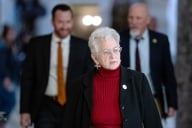You have /5 articles left.
Sign up for a free account or log in.
Princeton University became the first Ivy League institution in 36 years to be punished by the National Collegiate Athletic Association for a major infraction Wednesday, after the university's discovery that a booster had paid for a tennis player’s tuition as well as her room and board.
Ivy League institutions, unlike other Division I institutions, do not offer athletic scholarships, so athletes must pay their own way beyond any need-based financial aid they may receive — but an unidentified Princeton booster gave a (similarly unidentified) female tennis player approximately $33,000 to cover her cost of attendance at the institution for the 2007-8 academic year. The booster self-reported this action to Princeton’s compliance staff in fall 2008, after the university's sports program had sent a “compliance update” to “representatives of the institution’s athletics interests” reminding them of NCAA rules and regulations.
This is the first major NCAA violation by an Ivy League institution since 1974, when Cornell University was punished for "improper recruitment inducements" used by its men's basketball coaching staff and "improper entertainment" provided by its men's ice hockey coaching staff.
Princeton must vacate all match wins, both singles and doubles, in which the tennis player in question participated. The university was spared additional penalties typically reserved for major infractions, such as being put on probation or having to disassociate itself from the booster who paid for the athlete’s tuition, because of the “narrow scope” of the violations, the NCAA said. Still, the NCAA considers the offense “major” — hence Wednesday’s public reprimand of the institution in an infractions report from the Division I Committee on Infractions — because of the large amount of money provided to the athlete and the “competitive advantage” the panel said the university gained from the player attending Princeton.
University officials, however, disagreed with the infractions panel's conclusions and fought hard during the NCAA inquiry to have the matter considered “secondary,” because of what it called the “inadvertent nature of the infraction.” The institution and the Ivy League (its athletic conference) argue that the booster never intended to give the tennis program a competitive advantage with his actions and that, ultimately, they did not provide such an advantage. The student in question had already been admitted before the offer of payment was made, and the booster was a close family friend of the student. They also argue that the booster “was not acting on behalf of the tennis team or the athletics department.”
"We looked closely at the circumstances surrounding this isolated and inadvertent infraction and at the relationship between the alumnus and the student's family, and we are convinced that even though the alumnus is a longtime supporter of tennis at Princeton, he was acting only with the interest of helping a family friend pursue an educational opportunity for which her parents were not willing to provide financial support," Shirley M. Tilghman, Princeton's president, said in a statement. "We do not believe that this should have been characterized as a major violation, but we certainly regret the infraction and remain firmly committed to complying with all NCAA rules."
Cass Cliatt, a Princeton spokeswoman, confirmed that the female tennis player is still enrolled at the institution and that she has been “cleared” to play on the team this season. She added that the institution will maintain its relationship with the booster. Internally, she noted that no one is being punished or reprimanded by the institution for this NCAA infraction.
As for Princeton garnering the distinction of being the first Ivy institution to be punished by the NCAA for a major infraction in 36 years, and whether this would alter the way its compliance staff operates, Cliatt was dismissive.
“This doesn’t change the way we pursue compliance,” said Cliatt, noting that the institution had not decided whether or not to appeal the NCAA decision. “Whenever anything like this happens, it causes you to take another look at your program, but we remain proud of our compliance program.”








